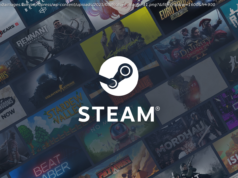The function was implemented in GNOME Shell 3.25.4
GNOME Shell 3.24.3 and 3.25.4 releases are now available, and while the first should soon make its way into the stable repositories of your favorite GNU/Linux distribution, that if you’re using the GNOME desktop environment, the latter is a development version published as part of the upcoming GNOME 3.26 release.
We’ll start with the GNOME Shell 3.24.3 update, which appears to be a minor maintenance release fixing a few bugs and implementing tablet rings/strips configuration. However, it looks like it finally fixes that annoying issue blocking clicks in the shutdown dialog, so we recommend installing it as soon as possible.
On the other hand, the GNOME Shell 3.25.4 development release adds quite a bunch of changes, starting with the ability to display OSD volume notifications when changing the volume with the mouse wheel (finally!) , and continuing with support for the Meson build system, which most of the apps from the GNOME Stack received.
A handful of improvements for the GNOME Display Manager (GDM) were also implemented in GNOME Shell 3.25.4, including a fix for the „Not listed“ focus indication, the ability to allow empty response to PAM (Pluggable Authentication Modules) messages, as well as the ability to disable the user list when it’s empty.
It also fixes the same bugs that were addressed in the stable GNOME Shell 3.24.3 release, including that annoying issue that blocked mouse clicks in the shutdown dialog and the missing icons in freedesktop notifications, and implements tablet rings/strips configuration.
Other than that, GNOME Shell 3.25.4 refines the list of search results, replaces the unresponsive app dialog of the Mutter composite and window manager, adjusts to the mozjs52 update in the Gjs Javascript binding, and squashed fifteen other miscellaneous bugs that have been discovered since the last release.
The source tarballs of both GNOME Shell 3.24.3 and GNOME Shell 3.25.4 are now available for download through our web portal if you want to compile either one on your GNU/Linux distribution, though we recommend installing them official or third-party repositories.






